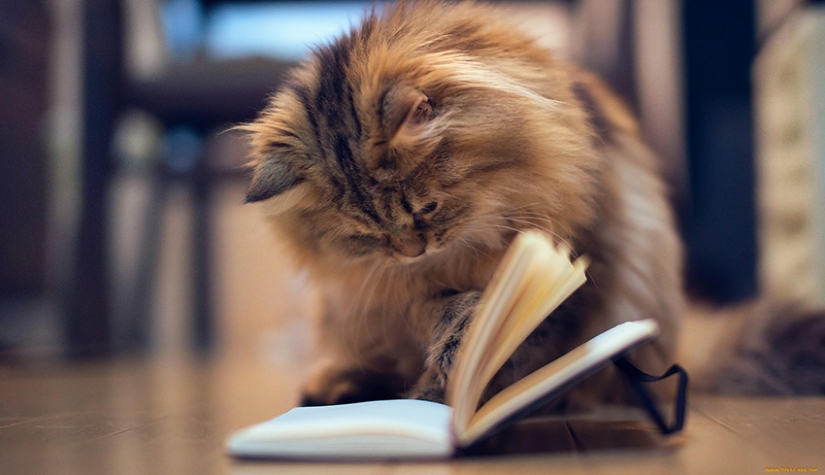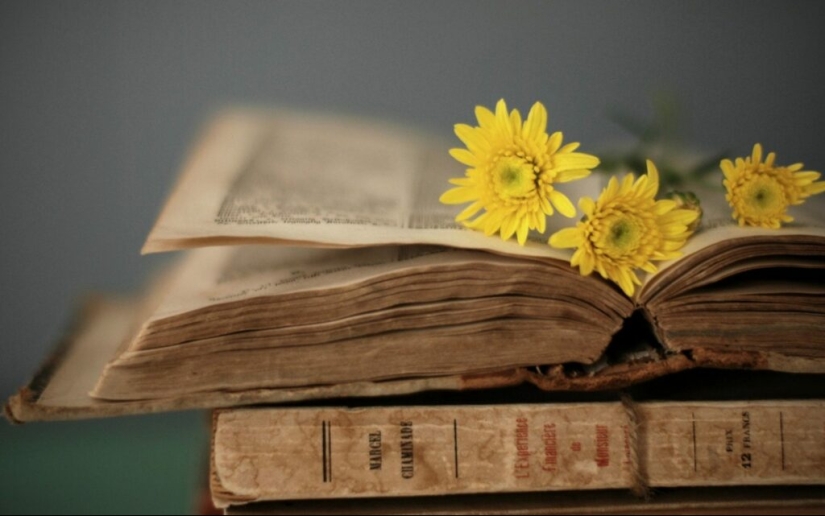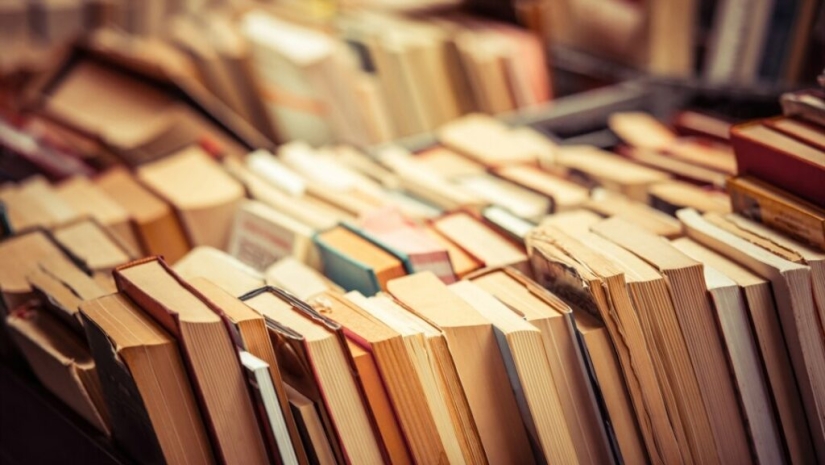What do books smell like and why do we like this smell
Categories: Science | Technology | World
By Pictolic https://pictolic.com/article/what-do-books-smell-like-and-why-do-we-like-this-smell.htmlDo you know the smell of books? No, not new, but stored in an old closet, slightly worn and with slightly yellowed pages. Many book lovers admit that they like to smell books. And of those who deny this passion, some are just shy to admit it. What do books smell like and why is their smell so attractive?

New books smell of printing and this fragrance, although pleasant, is not comparable to the smell of old books. Romantics will say that old books smell of adventures, distant countries, intrigues and so on. I want to believe it, but we will approach the issue from the point of view of science.

The love of book scents, it turns out, has an official name - olfactory bibliomania. At the heart of the smells are just chemical reactions that generate that very unique aroma. And the secret lies in that bright, chemical smell of the new book.
We think the new book smells like printer's ink, but that's not quite true. The main note of this fragrance is sodium hydroxide, that is, caustic soda. Thanks to this compound, the cellulose fibers swell. Then they are bleached with hydrogen peroxide and treated with an alkyl ketene dimer, which gives the raw material water resistance.

To this is later added the smell of paint, glue, bookbinding materials. All these components of the book are gradually, but inevitably, destroyed. It is this smell of the "dying" of the book that we feel and love. Over time, it changes and this phenomenon is well known to connoisseurs of literature.
The materials from which the books were made, and the technologies, changed over time. That is why books from different eras have a different smell. Until 1845, paper was made from rags. Flax and cotton contain a lot of cellulose, which is the basis of paper. In the middle of the 19th century, paper was learned to be made from wood. This technology is less expensive, but it also has some disadvantages. It's not just about deforestation, but also that such paper is less durable than rag paper.

The secret of the properties of rag and wood paper lies in the lingin. The paper pulp contained in linen and cotton materials is stable. But lingin, a plant polymer contained in wood, easily changes its properties over time. This is dangerous for books, so the paper for them is cleaned of lingin, as far as possible.
Newspaper, cheap paper contains a lot of lingin, so its life span is much shorter than book paper. But there is still no eternal paper, and sooner or later the reaction begins in any book. Lingin breaks down into acids that corrode the paper and because of this it turns yellow and crumbles. This chemical process is accompanied by the release of gases, the smell of which we feel.
In the early 1970s, another breakthrough occurred in the paper industry. A technology was invented that ensures maximum purification of raw materials from harmful lingin. Therefore, books published later are much less susceptible to aging. They don't smell so much, but they still smell!

Do you think that the smell of books is interesting only to olfactory bibliomaniacs and their sympathizers? It wasn't there! Scientists have adopted this interesting phenomenon and determine the exact age of books by vapors. Also, the analysis of chemical compounds released by paper helps to determine its composition and even shelf life. Catastrophic processes for paper, such as the defeat of fungal spores, are detected by precise equipment by smell even before the problem becomes obvious.
Before that, we talked about the typical book smell common to all books. But there are also individual shades that their owners give to books. The fragrance of the book is closely related to the place where it has been for a long time. If there was smoking in the room with books, then this will certainly affect the smell. Humidity, the presence of direct sunlight and many other factors will also contribute.

If there are a lot of books, then they saturate huge rooms with their smell. This smell may even be part of the historical heritage. An example of such a cult atmosphere is the air in the Wren Library in Cambridge. The guides draw the attention of the guests of the library to this and almost everyone agrees that they have never felt anything like this.
But why is this smell of the gradual death of books pleasant to us? It's no longer a matter of chemistry, but of psychology. What do book scents bring to you? Memories of childhood, when carefree hours passed in succession while reading an exciting novel. The memory of an old grandfather's closet filled with dusty folios hiding all the secrets of the world. Positive emotions associated with the delight of a good story.

You can continue indefinitely and the list will still not be complete. Everyone can add something of their own here and will certainly be right. See how designer and artist Pierre Bethel depicted incredible book magic in his fantastic photo project.
Recent articles

In Ancient Egypt, gods were revered, pharaohs were glorified, and majestic tombs were built. The builders of royal tombs were ...

Whether you are a tourist or a professional photographer, in both cases Lapland is a truly magical place. There is not only a very ...

Why should a coffin be a boring box if it can be ordered in the form of a lobster, fruit, bird or shoe? Residents of the African ...